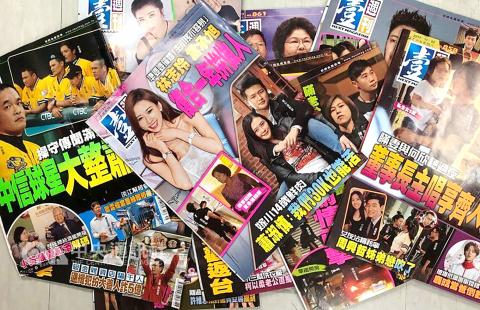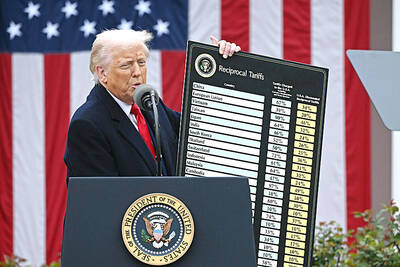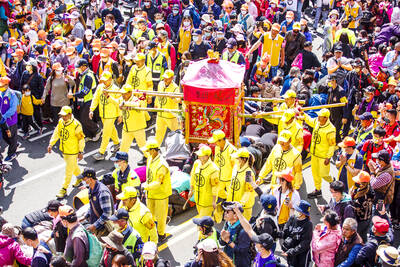With Hong Kong’s Next Magazine deciding to end its print edition last Wednesday, Taiwan’s Next Magazine president Chiu Ming-hui revealed during an interview the next day that the Taiwanese edition is going to follow suit. It will scrap its print edition after the final issue on April 4, and go fully digital.
Following its success in Hong Kong, the tabloid magazine launched its Taiwanese edition in 2001. Over the past 17 years, it has led to the growth of a “paparazzi” culture and led on popular issues, and had a considerable impact on the media scene in Taiwan. In recent years, however, the magazine has been hit by the rising importance of the Internet, and there have been many rumors of potential buyout attempts. In the end, it had little choice but to stop its print edition.
Taiwan’s Next Magazine reportedly suffered a financial loss of more than NT$200 million (about US$6.8 million) last year. After suffering financial losses for several years, senior management finally decided to move the magazine solely online, and will allegedly lay off as much as one third of its employees.

Photo: CNA
照片︰中央社
(CNA and Liberty Times, translated by Eddy Chang)
繼香港「壹週刊」決定自上週三起停刊紙本後,台灣「壹週刊」社長邱銘輝隔天受訪時也表示,該週刊預計將在四月四日推出最後一期的紙本,未來會全面朝數位發展。
二○○一年,「壹週刊」從香港進軍台灣,十七年來掀起一陣「狗仔」風潮、主導議題、衝擊台灣媒體生態。但該週刊近年來受到網路影響,並多次傳出交易,最終走上收掉紙本一途。
台灣「壹週刊」去年賠了兩億多元(六百八十萬美元),高層因為不堪連年虧損,決議全力轉型網路媒體,傳聞該週刊將解僱高達三分之一的人力。
(中央社、自由時報)

US President Donald Trump is taking a blowtorch to the rules that have governed world trade for decades. The “reciprocal’’ tariffs that he announced Wednesday last week are likely to create chaos for global businesses and conflict with America’s allies and adversaries alike. Since the 1960s, tariffs — or import taxes — have emerged from negotiations between dozens of countries. Trump wants to seize the process. “Obviously, it disrupts the way that things have been done for a very long time,’’ said Richard Mojica, a trade attorney at Miller & Chevalier. “Trump is throwing that out the window ... Clearly this is

The Federal Communications Commission (FCC) has announced new regulations requiring that all mobile phones sold in the United States be compatible with hearing aids. These rules aim to expand the range of options available to individuals with hearing loss, enabling them to choose devices that best suit their needs. The new plan includes requirements for universal Bluetooth connectivity. This means mobile phone manufacturers cannot limit their phones to interact only with specific devices. The rules also establish volume control standards to guarantee clear audio for hearing aid users. This will allow them to increase the volume without distortion. The

The Matsu pilgrimage is one of Taiwan’s most iconic annual religious events. This grand occasion is more than just a religious ceremony; it deeply reflects Taiwan’s history and culture. Originally, Matsu was the goddess of the sea, primarily responsible for protecting fishermen and ensuring their safe voyage. As immigrants brought Matsu worship to Taiwan, she gradually evolved into a deity overseeing health, business, and various aspects of life. In times of uncertainty, Matsu has become a vital source of spiritual comfort for the Taiwanese. The pilgrimage represents Matsu’s annual tour to inspect her domain, driving away evil and bringing

Dos & Don’ts — 想想看,這句話英語該怎麼說? 1. 我臥病三天。 ✔ I stayed in bed for three days. ✔ I kept to my bed for three days. χ I slept in my bed for three days. 註︰動詞 sleep 通常作「睡眠」解。例如:Usually we sleep eight hours a day. 「因病臥床」應用 to stay in bed 或 to keep to one’s bed. 2. 彼得容易傷風。 ✔ Peter is liable to colds (或to catch cold). ✔ Peter is subject to colds. χ Peter is easy to catch cold. 註︰easy 常用於事,可以說 English is easy to learn. 或 It is easy to learn English.,但不可以說 I am easy to learn English.。因為 easy 很少用於人,尤其用來指「容易」的場合。除非用在 an easy person 中,easy 在此意思是「隨和」。 另外,可以說 “It is easy to misuse the article.”